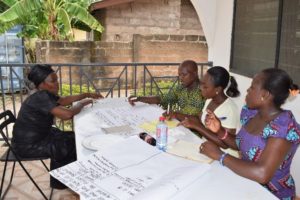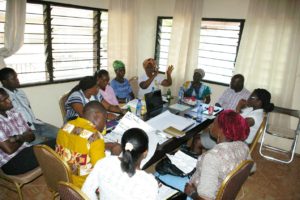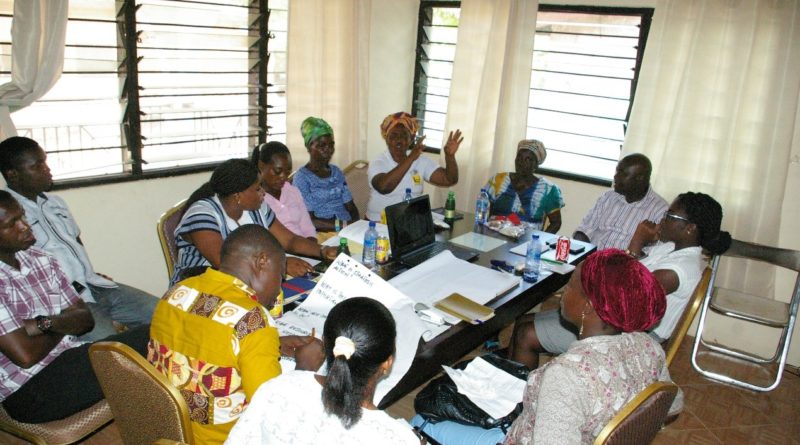Developing short, medium and long term actions for improving water, sanitation and waste management in Dodowa (Ghana)

On 28th and 29th of March and on 23rd and 24th of May 2018, the Dodowa Transition team supported the inhabitants of a number of Dodowa communities taking part in the Transition Management process to develop short, medium and long term actions supporting the improvement of water, sanitation and waste management in their communities. In order to do so, the transition team organized eight different arena meetings with participants from Apperkon, Wedokum, Zongo and Obom communities. In addition, representatives of local institutions, NGOs (e.g. People’s Dialogue) and grassroots initiatives such as the Ghana Federation of the Urban Poor were invited to join the meetings. During meetings taking place in March 2018, the participants worked in different groups and defined and described the actions for getting closer to their visions of cleaner, healthier and safer communities. In addition, discussions were held on which practices and behaviors need to change in order to achieve their visions.

During the meetings in May, the participants were asked to give priority to some of the actions already developed in the previous meetings, to discuss them in more detail in different groups and to develop a plan for each priority action. The presence of community mobilisers and representatives of NGOs and local institutions was key in this phase of the process. They shared lessons learnt in their work, gave examples of activities and projects developed by active groups of inhabitants in other communities, and collaborations existing between community members and local institutions. They also shared methods that effectively resulted in engaging and raising awareness related to multiple issues including water and sanitation practices and behaviors. It was important for the participants to hear inspiring stories of community members that started to collaborate with local authorities and other institutions and managed to get support for implementing water and sanitation services. These insights were particularly important for inspiring the participants and for motivating them to act in their communities. The developed action plans for the priority actions included multiple issues such as the resources needed, the list of institutions and stakeholders to collaborate with, and the skills and knowledge needed to implement them. The action plans included multiple actions that will be implemented in the communities in the next months; these actions included, for example, the organization of community festivals for raising awareness on water and sanitation practices, the participatory mapping of existing water and sanitation services in the communities that will be shared with the local authority (i.e. district assembly).

